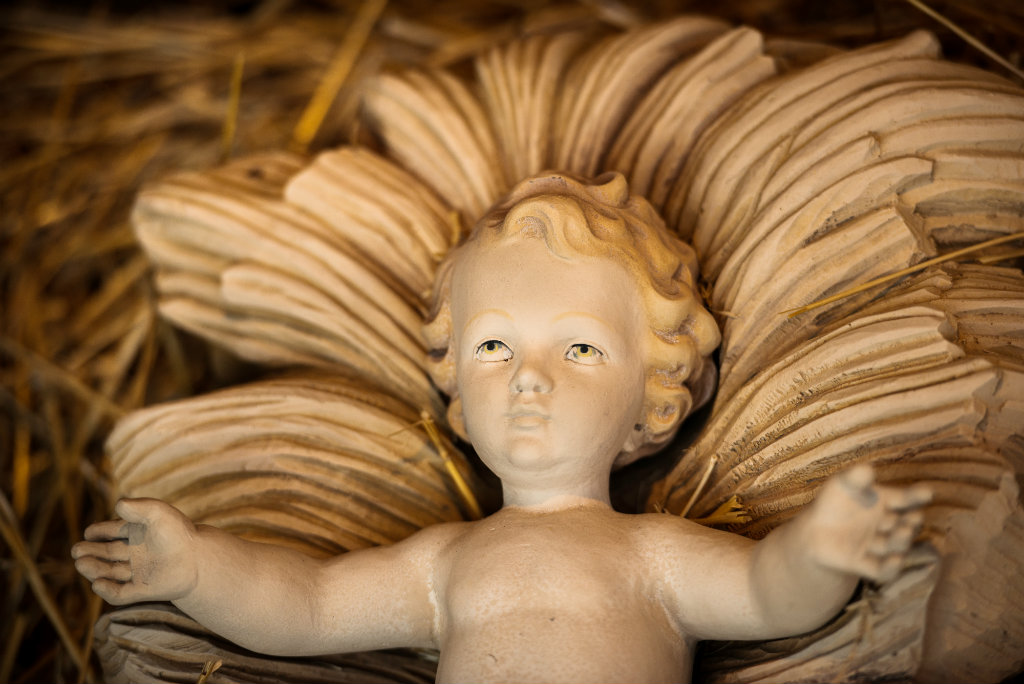by Nabil Nour
O Key of David and scepter of the house of Israel, You open and no one can close, You close and no one can open: Come and rescue the prisoners who are in darkness and the shadow of death. – Antiphon for December 20
The first time I watched My Big Fat Greek Wedding, I laughed so hard that my stomach hurt. I was reliving my life. Growing up in an Arab home, we were like the Greek people—loud and boisterous, always together (but without the spitting). It is intriguing to hear the father in his Greek accent say: “Give me any word in English, and I will show you that it has its origin in Greek.” And he would often say: “This word comes from two Greek words.”
So too with an antiphon, a compound Greek word meaning “opposite voice.” In Christian music and ritual, the antiphon is a response between the congregation and a cantor or at times a choir. Throughout the pages of the Holy Bible, the “response” of the antiphon is often heard.
Both together
Travel through the corridors of Holy Scripture, and you will find many biblical examples of both chanting and antiphons. At times you will find both together, such as the antiphonal chanting of the angels in Isaiah 6. The phrase Yahweh Elohe’ Sabaoth (Hebrew), meaning, “Yahweh, Lord of the armies,” was a war chant.
The purpose of the “O Antiphons” is one of balance, beauty, mystery and fullness of Jesus’ coming in humility for humanity’s sake. These antiphons remind us that “The Infant Priest Was Holy Born” (LSB 624). These Antiphons are teaching us Christ–His mission and His holy name! They keep the Church’s focus on the Advent of Christ.
His first coming is not only to fulfill prophecy but to set up the foundation for His life-giving Word and precious Sacraments. It is the root of Jesse into whom we are baptized (Gal. 3:26–29). It is the Lord’s body and blood we receive. Emmanuel is truly with us in grace through Baptism and the teachings of Christ but, more importantly, it is in with, and under bread and wine for our salvation and strengthening of our faith (Matt. 28:16–20).
The O Antiphons direct special attention to Jesus’ first coming. These ancient antiphons are rich, royal responses to the mystery of Messiah’s name, the majesty of His mission and the might of His personage. Like a beautiful diamond with fabulous facets, they move souls to sing of the wonder of God coming to earth to give humans a new birth.
The fifth O antiphon, “O Key of David,” refers to one of the more obscure and little-known prophecies about Jesus Christ (Is. 22:20–25). Isaiah speaks of a person who lived about 700 years before Christ, who served as the steward or housekeeper in charge of the royal palace.
The palace was originally built by David, and the kings, the descendants of David, lived and reigned there. Isaiah says, “On that day, I will call to my servant Elyaqim, the son of Hilkiah. I will clothe him with a robe and fasten a sash around him, and give him authority. I will place the key of David on his shoulder. He will open, and no one can shut; he will shut, and no one can open.”
Elyaqim was in charge of David’s palace. He had the key to the palace, and so the key was called the “Key of David.” When he locked up the palace, no one could get in. When he opened the doors, no one else had a key to lock the doors shut. He alone had the authority to lock and unlock the palace doors.
The Book of Revelation applies this title to the risen Lord Jesus Christ. Jesus is “the Holy One, the True One, He who has the Key of David, He who opens, and no one can shut; He shuts, and no one can open” (3:7).
The key to life and heaven
Jesus says, “I am the first and the last, the living one. I was dead, but behold, I am alive forever and ever. I have the keys of death and hell” (1:18). Jesus has much more than just the keys to the palace of David. Jesus Christ is Himself the key to life and heaven. By His resurrection from the grave, Jesus Christ has opened up for us the door to everlasting life. What Jesus Christ has opened, no one can shut.
What comfort and joy fills our hearts in knowing that no one–and nothing–can separate us from the love of God in Jesus Christ. Heaven stands open, ready to receive us, since Jesus Christ has unlocked the door.
This joy is more than a good and fuzzy feeling in our hearts; it is the certainty that has unlocked and loosened us from our sins that bound us. We are freed from the binding power of our sins, free to rejoice in God’s forgiveness, through the heavenly Child come down to earth–the Key of David.
My prayer and song for you is that together we harmonize with the Church of all ages as we sing the song of Wisdom Incarnate anew and joyfully bow the knees before Him who came to save us. In the seven-fold name of Jesus of these antiphons, let us rejoice that He who was promised of old, He is here today! Let us sing the name that is above all names, yes, let us sing!
The Rev. Nabil Nour is pastor of Trinity Lutheran Church, Hartford, S.D., and LCMS third vice-president.
**This article was originally published in the December 2013 The Lutheran Witness.




Very helpful to my understanding of the “O Antiphons”.